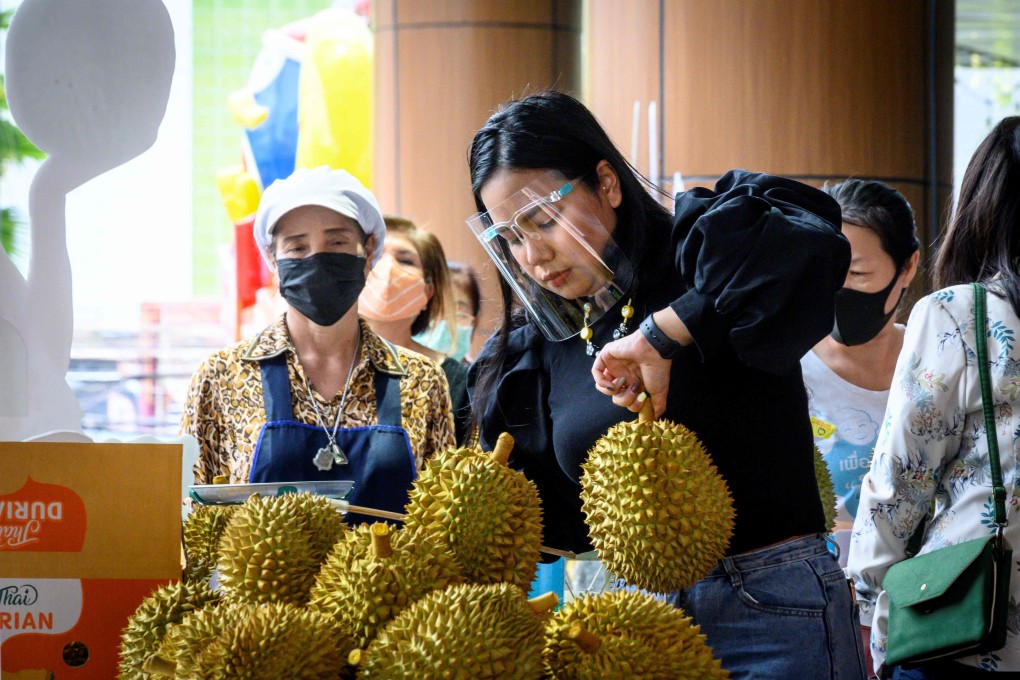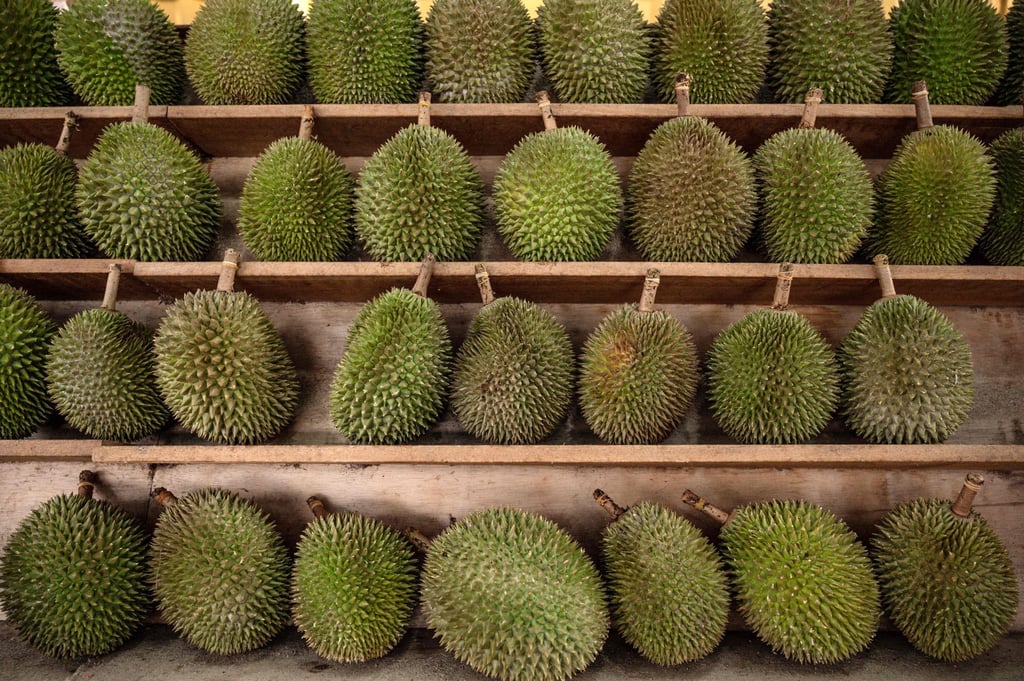Thailand’s durian dealers fear for China exports after coronavirus surge
- Thailand is the world’s No 1 exporter of the ‘king of fruits’, the vast majority of which go straight to China – with 575,000 tonnes shipped in 2020 alone
- But as coronavirus infections hit record levels, Thailand’s durian dealers are worried about a repeat of the social media scare that sent China’s Chilean cherry sales tumbling earlier this year

“I was blown away,” said Pan, now 36. “The durian I had in China was nothing compared to what I’d had in Thailand. I knew I had to do something.”

Thailand made it through much of 2020 relatively unscathed by the pandemic – until an outbreak in December tied to a seafood market southwest of Bangkok sparked a fierce second wave of infection. The country is now in the grips of a third coronavirus surge that began last month at an upscale entertainment venue in the capital, and Pan said she is worried about what it could mean for Thailand’s durian exports to China.
“Now I am very worried that China might find the coronavirus in any of the durian containers. That would mean a total ban of the fruit from Thailand,” said Pan, who has lowered her durian orders to 10 tonnes per day to avoid any unforeseen circumstances. “The Covid-19 situation in Thailand is serious now and I don’t want any risk during the inspections at port.”